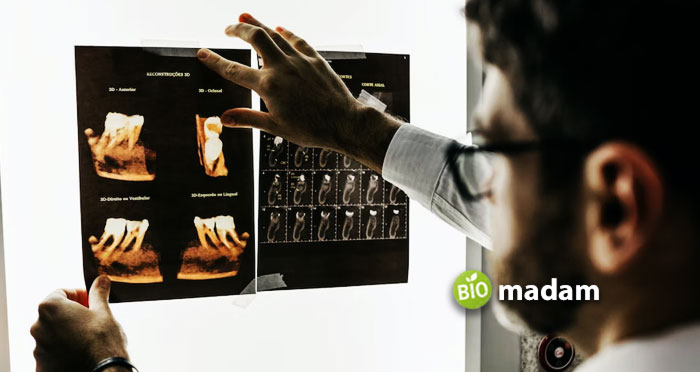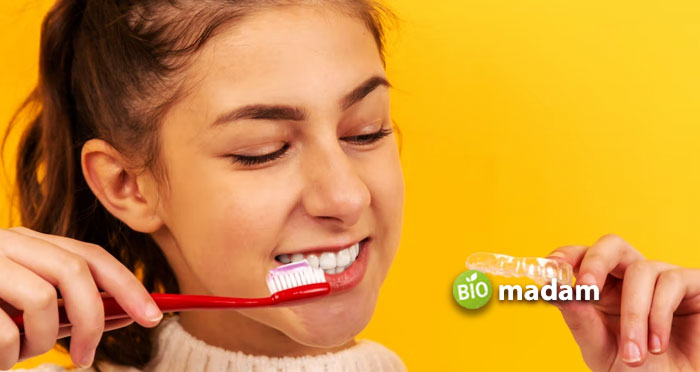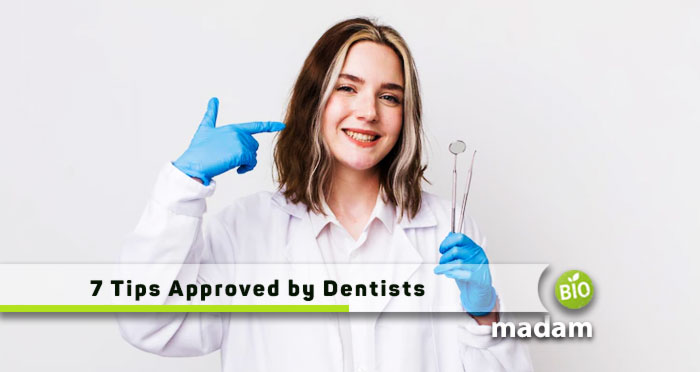Recently updated on January 31st, 2024 at 07:27 am
Looking for a way to keep your pearly whites shining? Check out these dentist-approved tips for taking care of your mouth! By following these simple guidelines, you can protect your teeth and gums from decay and disease. So what are you waiting for? Start taking care of your mouth today!
Go to See a Dentist Regularly
Seeing a dentist regularly is one of the most important things you can do for your oral health. Regular checkups allow your dentist to keep an eye on any existing problems and catch any early signs and symptoms of decay or disease so that they can be addressed quickly and effectively. Your dentist will be able to provide you with personalized advice about how best to take care of your teeth and gums, such as which type of toothbrush is best for your mouth or which type of mouthwash you should use.

So make sure to schedule an appointment at least once a year to keep your mouth healthy! When looking to find best dentist services make sure to ask your family and friends for a recommendation. It is also recommended to read reviews online to get the best experience possible.
Brush your Teeth Twice a Day
Brushing your teeth twice a day should be part of everyone’s daily routine. Not only does it help remove plaque and bacteria, but it also helps to keep your teeth and gums healthy. Make sure to use a soft-bristled toothbrush, with fluoride toothpaste, and brush for at least two minutes each time you brush. Brush in circular motions, paying extra attention to the gum line and back molars. If possible, try using an electric toothbrush, as they can do a better job at getting rid of plaque and debris.
Not every brush is made equal – to make sure you’re getting the most out of your brushing routine, replace your toothbrush every three months. Your mouth will stay clean and healthy as a result of this! If you have sensitive gums, look for soft-bristled toothbrushes specifically designed for people with sensitive gums. Cleaning your tongue is also important – use a tongue scraper or brush to remove plaque and bacteria buildup.
Use a Fluoride Toothpaste
Using fluoride toothpaste is an incredibly important step in taking proper care of your teeth and gums. Fluoride helps strengthen enamel, which is the protective outer layer of the teeth. In addition to helping prevent tooth decay, fluoride helps reduce the risk of cavities.
A good rule of thumb when selecting toothpaste with fluoride is to check the American Dental Association’s seal of approval, which indicates the toothpaste meets their standards for safety and efficacy. If possible, opt for a product with both fluoride and xylitol, as this further helps protect against cavities by reducing bacteria in your mouth. Make sure to brush twice daily for two minutes each time.
Floss
Flossing is an essential part of proper dental care and should not be skipped. Flossing removes plaque and food particles that brushing alone can’t reach. It also helps to prevent gum disease and cavities, as bacteria can build up in the hard-to-reach areas between your teeth. To floss correctly, start by wrapping a long piece of floss around your middle fingers.
Gently insert it between each tooth and move it up and down against the side of each tooth to remove any debris before moving on to the next one. Make sure that you are using enough pressure when you floss so that you can get all the plaque out, but not too much so as to cause any damage or bleeding. Flossing once a day is recommended for healthy teeth and gums!

Use Mouthwash
Using mouthwash is an important part of a good dental care routine. Not only does it help to freshen up your breath, but it also helps to reduce plaque and bacteria that can lead to cavities and other oral health issues. Be sure to look for an antiseptic or anti-microbial mouthwash containing fluoride, as this will help to protect your teeth and gums.
Follow the instructions on the label and use mouthwash twice a day for the best results. Swish the mouthwash around in your mouth for at least 30 seconds before spitting it out to get the most benefits. Mouthwash can be used both before and after brushing, but never mix toothpaste with it as this can reduce its effectiveness.
Be Careful of Teeth Grinding
Teeth grinding, also known as bruxism, is a condition that can cause significant damage to your teeth if left unchecked. It is important to be mindful of this habit and take steps towards curbing it if you find yourself grinding your teeth at night or during stressful times. If the problem persists, consult with your dentist since they are the best qualified to provide advice on how to address it. Wearing a night guard or mouth guard can help lessen the impact of teeth grinding and protect your teeth from further damage.
Additionally, managing stress levels through relaxation techniques such as yoga, meditation, and deep breathing can be effective in preventing bruxism. Taking these steps now will keep your teeth safe and healthy for years to come. Also, be sure to talk to your dentist regularly about any dental health issues you may have. With proper care and regular check-ups, you will be on the path toward a healthier mouth.
Avoid Processed Sugar
It’s important to limit your intake of processed sugar in order to maintain good dental health. Processed sugars found in candy, soda, and other sugary snacks can cause tooth decay and cavities if consumed in large amounts. To reduce the risk of these issues, try to snack on more natural options such as fruits and vegetables throughout the day.
Also, be sure to brush your teeth after eating sugary foods to minimize the number of sugar particles clinging to the surfaces of your teeth. Following these tips can help protect you from tooth decay and cavities while maintaining your overall dental health.
In conclusion, taking proper care of your mouth is vital for maintaining healthy teeth and gums. Brushing, flossing, using mouthwash, reducing sugar intake, and being mindful of teeth grinding are all important steps in having a healthier smile. By following these tips you can ensure that your teeth stay strong and disease-free for years to come!

Hi, they call me Jenna, and I am also known for achieving a gold medal during my Ph.D. in science life. I always had a dream to educate people through my utmost writing hobby. So, I chose this blogging path, and Biomadam gave me this opportunity to present for them. I now stand to entertain you. Continue reading my articles & discuss if you’ve any confusion through the comment section below.

